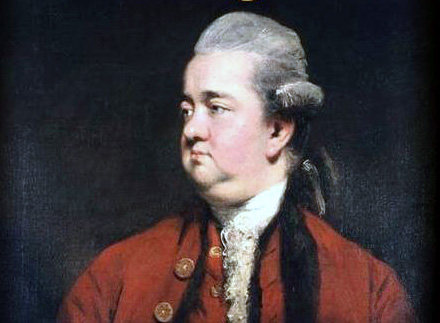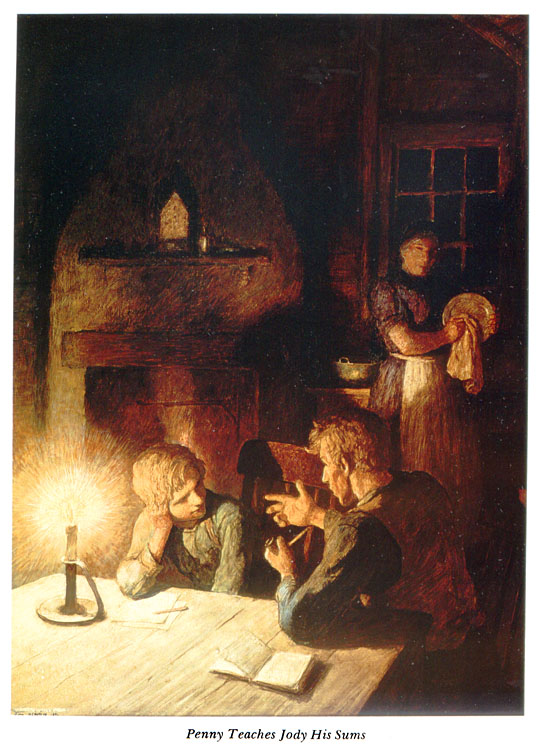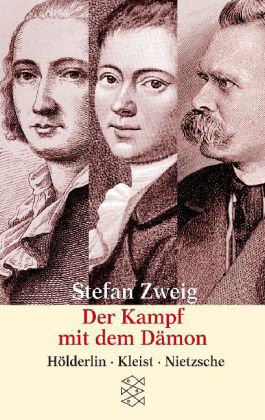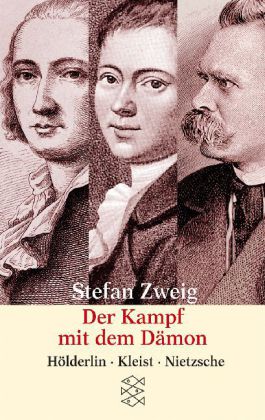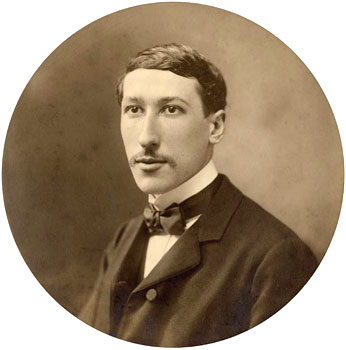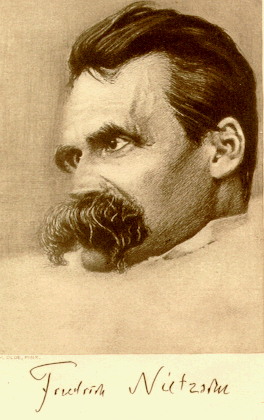The History of the Decline and Fall
of the Roman Empire
Chapter XXII:
Julian Declared Emperor
Part II
The ambassadors of Julian had been instructed to execute, with the utmost diligence, their important commission. But, in their passage through Italy and Illyricum, they were detained by the tedious and affected delays of the provincial governors; they were conducted by slow journeys from Constantinople to Cæsarea in Cappadocia; and when at length they were admitted to the presence of Constantius, they found that he had already conceived, from the despatches of his own officers, the most unfavorable opinion of the conduct of Julian, and of the Gallic army.
The letters were heard with impatience; the trembling messengers were dismissed with indignation and contempt; and the looks, gestures, the furious language of the monarch, expressed the disorder of his soul. The domestic connection, which might have reconciled the brother and the husband of Helena, was recently dissolved by the death of that princess, whose pregnancy had been several times fruitless, and was at last fatal to herself. The empress Eusebia had preserved, to the last moment of her life, the warm, and even jealous, affection which she had conceived for Julian; and her mild influence might have moderated the resentment of a prince, who, since her death, was abandoned to his own passions, and to the arts of his eunuchs.
But the terror of a foreign invasion obliged him to suspend the punishment of a private enemy: he continued his march towards the confines of Persia, and thought it sufficient to signify the conditions which might entitle Julian and his guilty followers to the clemency of their offended sovereign. He required, that the presumptuous Cæsar should expressly renounce the appellation and rank of Augustus, which he had accepted from the rebels; that he should descend to his former station of a limited and dependent minister; that he should vest the powers of the state and army in the hands of those officers who were appointed by the Imperial court; and that he should trust his safety to the assurances of pardon, which were announced by Epictetus, a Gallic bishop, and one of the Arian favorites of Constantius.
Several months were ineffectually consumed in a treaty which was negotiated at the distance of three thousand miles between Paris and Antioch; and, as soon as Julian perceived that his modest and respectful behavior served only to irritate the pride of an implacable adversary, he boldly resolved to commit his life and fortune to the chance of a civil war.
He gave a public and military audience to the quæstor Leonas: the haughty epistle of Constantius was read to the attentive multitude; and Julian protested, with the most flattering deference, that he was ready to resign the title of Augustus, if he could obtain the consent of those whom he acknowledged as the authors of his elevation. The faint proposal was impetuously silenced; and the acclamations of “Julian Augustus, continue to reign, by the authority of the army, of the people, of the republic which you have saved,” thundered at once from every part of the field, and terrified the pale ambassador of Constantius. A part of the letter was afterwards read, in which the emperor arraigned the ingratitude of Julian, whom he had invested with the honors of the purple; whom he had educated with so much care and tenderness; whom he had preserved in his infancy, when he was left a helpless orphan.
“An orphan!” interrupted Julian, who justified his cause by indulging his passions: “does the assassin of my family reproach me that I was left an orphan? He urges me to revenge those injuries which I have long studied to forget.” The assembly was dismissed; and Leonas, who, with some difficulty, had been protected from the popular fury, was sent back to his master with an epistle, in which Julian expressed, in a strain of the most vehement eloquence, the sentiments of contempt, of hatred, and of resentment, which had been suppressed and imbittered by the dissimulation of twenty years.
After this message, which might be considered as a signal of irreconcilable war, Julian, who, some weeks before, had celebrated the Christian festival of the Epiphany, made a public declaration that he committed the care of his safety to the Immortal Gods; and thus publicly renounced the religion as well as the friendship of Constantius. The situation of Julian required a vigorous and immediate resolution. He had discovered, from intercepted letters, that his adversary, sacrificing the interest of the state to that of the monarch, had again excited the Barbarians to invade the provinces of the West.
The position of two magazines, one of them collected on the banks of the Lake of Constance, the other formed at the foot of the Cottian Alps, seemed to indicate the march of two armies; and the size of those magazines, each of which consisted of six hundred thousand quarters of wheat, or rather flour, was a threatening evidence of the strength and numbers of the enemy who prepared to surround him. But the Imperial legions were still in their distant quarters of Asia; the Danube was feebly guarded; and if Julian could occupy, by a sudden incursion, the important provinces of Illyricum, he might expect that a people of soldiers would resort to his standard, and that the rich mines of gold and silver would contribute to the expenses of the civil war.
He proposed this bold enterprise to the assembly of the soldiers; inspired them with a just confidence in their general, and in themselves; and exhorted them to maintain their reputation of being terrible to the enemy, moderate to their fellow-citizens, and obedient to their officers. His spirited discourse was received with the loudest acclamations, and the same troops which had taken up arms against Constantius, when he summoned them to leave Gaul, now declared with alacrity, that they would follow Julian to the farthest extremities of Europe or Asia. The oath of fidelity was administered; and the soldiers, clashing their shields, and pointing their drawn swords to their throats, devoted themselves, with horrid imprecations, to the service of a leader whom they celebrated as the deliverer of Gaul and the conqueror of the Germans.
This solemn engagement, which seemed to be dictated by affection rather than by duty, was singly opposed by Nebridius, who had been admitted to the office of Prætorian præfect. That faithful minister, alone and unassisted, asserted the rights of Constantius, in the midst of an armed and angry multitude, to whose fury he had almost fallen an honorable, but useless sacrifice. After losing one of his hands by the stroke of a sword, he embraced the knees of the prince whom he had offended. Julian covered the præfect with his Imperial mantle, and, protecting him from the zeal of his followers, dismissed him to his own house, with less respect than was perhaps due to the virtue of an enemy.
The high office of Nebridius was bestowed on Sallust; and the provinces of Gaul, which were now delivered from the intolerable oppression of taxes, enjoyed the mild and equitable administration of the friend of Julian, who was permitted to practise those virtues which he had instilled into the mind of his pupil. The hopes of Julian depended much less on the number of his troops, than on the celerity of his motions. In the execution of a daring enterprise, he availed himself of every precaution, as far as prudence could suggest; and where prudence could no longer accompany his steps, he trusted the event to valor and to fortune. In the neighborhood of Basil he assembled and divided his army.
One body, which consisted of ten thousand men, was directed under the command of Nevitta, general of the cavalry, to advance through the midland parts of Rhætia and Noricum. A similar division of troops, under the orders of Jovius and Jovinus, prepared to follow the oblique course of the highways, through the Alps, and the northern confines of Italy.
The instructions to the generals were conceived with energy and precision: to hasten their march in close and compact columns, which, according to the disposition of the ground, might readily be changed into any order of battle; to secure themselves against the surprises of the night by strong posts and vigilant guards; to prevent resistance by their unexpected arrival; to elude examination by their sudden departure; to spread the opinion of their strength, and the terror of his name; and to join their sovereign under the walls of Sirmium. For himself Julian had reserved a more difficult and extraordinary part.
He selected three thousand brave and active volunteers, resolved, like their leader, to cast behind them every hope of a retreat; at the head of this faithful band, he fearlessly plunged into the recesses of the Marcian, or Black Forest, which conceals the sources of the Danube; and, for many days, the fate of Julian was unknown to the world. The secrecy of his march, his diligence, and vigor, surmounted every obstacle; he forced his way over mountains and morasses, occupied the bridges or swam the rivers, pursued his direct course, without reflecting whether he traversed the territory of the Romans or of the Barbarians, and at length emerged, between Ratisbon and Vienna, at the place where he designed to embark his troops on the Danube.
By a well-concerted stratagem, he seized a fleet of light brigantines, as it lay at anchor; secured a apply of coarse provisions sufficient to satisfy the indelicate, and voracious, appetite of a Gallic army; and boldly committed himself to the stream of the Danube.
The labors of the mariners, who plied their oars with incessant diligence, and the steady continuance of a favorable wind, carried his fleet above seven hundred miles in eleven days; and he had already disembarked his troops at Bononia, only nineteen miles from Sirmium, before his enemies could receive any certain intelligence that he had left the banks of the Rhine. In the course of this long and rapid navigation, the mind of Julian was fixed on the object of his enterprise; and though he accepted the deputations of some cities, which hastened to claim the merit of an early submission, he passed before the hostile stations, which were placed along the river, without indulging the temptation of signalizing a useless and ill-timed valor.
The banks of the Danube were crowded on either side with spectators, who gazed on the military pomp, anticipated the importance of the event, and diffused through the adjacent country the fame of a young hero, who advanced with more than mortal speed at the head of the innumerable forces of the West. Lucilian, who, with the rank of general of the cavalry, commanded the military powers of Illyricum, was alarmed and perplexed by the doubtful reports, which he could neither reject nor believe. He had taken some slow and irresolute measures for the purpose of collecting his troops, when he was surprised by Dagalaiphus, an active officer, whom Julian, as soon as he landed at Bononia, had pushed forwards with some light infantry.
The captive general, uncertain of his life or death, was hastily thrown upon a horse, and conducted to the presence of Julian; who kindly raised him from the ground, and dispelled the terror and amazement which seemed to stupefy his faculties. But Lucilian had no sooner recovered his spirits, than he betrayed his want of discretion, by presuming to admonish his conqueror that he had rashly ventured, with a handful of men, to expose his person in the midst of his enemies.
“Reserve for your master Constantius these timid remonstrances,” replied Julian, with a smile of contempt: “when I gave you my purple to kiss, I received you not as a counsellor, but as a suppliant.” Conscious that success alone could justify his attempt, and that boldness only could command success, he instantly advanced, at the head of three thousand soldiers, to attack the strongest and most populous city of the Illyrian provinces.
As he entered the long suburb of Sirmium, he was received by the joyful acclamations of the army and people; who, crowned with flowers, and holding lighted tapers in their hands, conducted their acknowledged sovereign to his Imperial residence. Two days were devoted to the public joy, which was celebrated by the games of the circus; but, early on the morning of the third day, Julian marched to occupy the narrow pass of Succi, in the defiles of Mount Hæmus; which, almost in the midway between Sirmium and Constantinople, separates the provinces of Thrace and Dacia, by an abrupt descent towards the former, and a gentle declivity on the side of the latter.
The defence of this important post was intrusted to the brave Nevitta; who, as well as the generals of the Italian division, successfully executed the plan of the march and junction which their master had so ably conceived. The homage which Julian obtained, from the fears or the inclination of the people, extended far beyond the immediate effect of his arms. The præfectures of Italy and Illyricum were administered by Taurus and Florentius, who united that important office with the vain honors of the consulship; and as those magistrates had retired with precipitation to the court of Asia, Julian, who could not always restrain the levity of his temper, stigmatized their flight by adding, in all the Acts of the Year, the epithet of fugitive to the names of the two consuls.
The provinces which had been deserted by their first magistrates acknowledged the authority of an emperor, who, conciliating the qualities of a soldier with those of a philosopher, was equally admired in the camps of the Danube and in the cities of Greece. From his palace, or, more properly, from his head-quarters of Sirmium and Naissus, he distributed to the principal cities of the empire, a labored apology for his own conduct; published the secret despatches of Constantius; and solicited the judgment of mankind between two competitors, the one of whom had expelled, and the other had invited, the Barbarians. Julian, whose mind was deeply wounded by the reproach of ingratitude, aspired to maintain, by argument as well as by arms, the superior merits of his cause; and to excel, not only in the arts of war, but in those of composition.
His epistle to the senate and people of Athens seems to have been dictated by an elegant enthusiasm; which prompted him to submit his actions and his motives to the degenerate Athenians of his own times, with the same humble deference as if he had been pleading, in the days of Aristides, before the tribunal of the Areopagus.
His application to the senate of Rome, which was still permitted to bestow the titles of Imperial power, was agreeable to the forms of the expiring republic. An assembly was summoned by Tertullus, præfect of the city; the epistle of Julian was read; and, as he appeared to be master of Italy his claims were admitted without a dissenting voice. His oblique censure of the innovations of Constantine, and his passionate invective against the vices of Constantius, were heard with less satisfaction; and the senate, as if Julian had been present, unanimously exclaimed, “Respect, we beseech you, the author of your own fortune.”
An artful expression, which, according to the chance of war, might be differently explained; as a manly reproof of the ingratitude of the usurper, or as a flattering confession, that a single act of such benefit to the state ought to atone for all the failings of Constantius. The intelligence of the march and rapid progress of Julian was speedily transmitted to his rival, who, by the retreat of Sapor, had obtained some respite from the Persian war. Disguising the anguish of his soul under the semblance of contempt, Constantius professed his intention of returning into Europe, and of giving chase to Julian; for he never spoke of his military expedition in any other light than that of a hunting party.
In the camp of Hierapolis, in Syria, he communicated this design to his army; slightly mentioned the guilt and rashness of the Cæsar; and ventured to assure them, that if the mutineers of Gaul presumed to meet them in the field, they would be unable to sustain the fire of their eyes, and the irresistible weight of their shout of onset.
The speech of the emperor was received with military applause, and Theodotus, the president of the council of Hierapolis, requested, with tears of adulation, that his city might be adorned with the head of the vanquished rebel. A chosen detachment was despatched away inpost-wagons, to secure, if it were yet possible, the pass of Succi; the recruits, the horses, the arms, and the magazines, which had been prepared against Sapor, were appropriated to the service of the civil war; and the domestic victories of Constantius inspired his partisans with the most sanguine assurances of success.
The notary Gaudentius had occupied in his name the provinces of Africa; the subsistence of Rome was intercepted; and the distress of Julian was increased by an unexpected event, which might have been productive of fatal consequences. Julian had received the submission of two legions and a cohort of archers, who were stationed at Sirmium; but he suspected, with reason, the fidelity of those troops which had been distinguished by the emperor; and it was thought expedient, under the pretence of the exposed state of the Gallic frontier, to dismiss them from the most important scene of action.
They advanced, with reluctance, as far as the confines of Italy; but as they dreaded the length of the way, and the savage fierceness of the Germans, they resolved, by the instigation of one of their tribunes, to halt at Aquileia, and to erect the banners of Constantius on the walls of that impregnable city.
The vigilance of Julian perceived at once the extent of the mischief, and the necessity of applying an immediate remedy. By his order, Jovinus led back apart of the army into Italy; and the siege of Aquileia was formed with diligence, and prosecuted with vigor. But the legionaries, who seemed to have rejected the yoke of discipline, conducted the defence of the place with skill and perseverance; invited the rest of Italy to imitate the example of their courage and loyalty; and threatened the retreat of Julian, if he should be forced to yield to the superior numbers of the armies of the East.
But the humanity of Julian was preserved from the cruel alternative which he pathetically laments, of destroying or of being himself destroyed: and the seasonable death of Constantius delivered the Roman empire from the calamities of civil war.
The approach of winter could not detain the monarch at Antioch; and his favorites durst not oppose his impatient desire of revenge. A slight fever, which was perhaps occasioned by the agitation of his spirits, was increased by the fatigues of the journey; and Constantius was obliged to halt at the little town of Mopsucrene, twelve miles beyond Tarsus, where he expired, after a short illness, in the forty-fifth year of his age, and the twenty-fourth of his reign. His genuine character, which was composed of pride and weakness, of superstition and cruelty, has been fully displayed in the preceding narrative of civil and ecclesiastical events.
The long abuse of power rendered him a considerable object in the eyes of his contemporaries; but as personal merit can alone deserve the notice of posterity, the last of the sons of Constantine may be dismissed from the world, with the remark, that he inherited the defects, without the abilities, of his father. Before Constantius expired, he is said to have named Julian for his successor; nor does it seem improbable, that his anxious concern for the fate of a young and tender wife, whom he left with child, may have prevailed, in his last moments, over the harsher passions of hatred and revenge.
Eusebius, and his guilty associates, made a faint attempt to prolong the reign of the eunuchs, by the election of another emperor; but their intrigues were rejected with disdain, by an army which now abhorred the thought of civil discord; and two officers of rank were instantly despatched, to assure Julian, that every sword in the empire would be drawn for his service. The military designs of that prince, who had formed three different attacks against Thrace, were prevented by this fortunate event. Without shedding the blood of his fellow-citizens, he escaped the dangers of a doubtful conflict, and acquired the advantages of a complete victory. Impatient to visit the place of his birth, and the new capital of the empire, he advanced from Naissus through the mountains of Hæmus, and the cities of Thrace.
When he reached Heraclea, at the distance of sixty miles, all Constantinople was poured forth to receive him; and he made his triumphal entry amidst the dutiful acclamations of the soldiers, the people, and the senate. At innumerable multitude pressed around him with eager respect and were perhaps disappointed when they beheld the small stature and simple garb of a hero, whose unexperienced youth had vanquished the Barbarians of Germany, and who had now traversed, in a successful career, the whole continent of Europe, from the shores of the Atlantic to those of the Bosphorus.
A few days afterwards, when the remains of the deceased emperor were landed in the harbor, the subjects of Julian applauded the real or affected humanity of their sovereign. On foot, without his diadem, and clothed in a mourning habit, he accompanied the funeral as far as the church of the Holy Apostles, where the body was deposited: and if these marks of respect may be interpreted as a selfish tribute to the birth and dignity of his Imperial kinsman, the tears of Julian professed to the world that he had forgot the injuries, and remembered only the obligations, which he had received from Constantius.
As soon as the legions of Aquileia were assured of the death of the emperor, they opened the gates of the city, and, by the sacrifice of their guilty leaders, obtained an easy pardon from the prudence or lenity of Julian; who, in the thirty-second year of his age, acquired the undisputed possession of the Roman empire.
